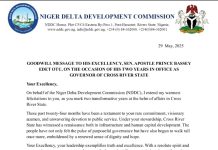
Captain Mikel Obi, Japanese Businessman & Coach Samson Siasia
Eugene Upah, 26 August 2016
As a sportsperson, I have been worried about my country’s performance at the just concluded Olympics held in Rio. The performance of Nigeria in African football, and the world over, is not as bad as the entire outing of the various sporting associations that represented team Nigeria at the just concluded Olympics. This is a reminder about an article I wrote earlier, warning about prioritizing football at the expense of other sports. A nation as large as Nigeria, with an estimated 170 million people could only boast of a bronze medal, when we have Nigerians representing and winning laurels for other countries. This is just a 0.1 percent advancement as against the 2012 London Olympics were Nigeria returned without a single medal. Very sad indeed.
While the Nigerian sports industry has grown in recent years, the performances of our sportsmen and women has not been good at the Olympic Games and other major international competitions. This is because most state governments use the scarce resources available for sports development to buy athletes for national competitions rather than implementing programs across states that are designed to discover athletes at a young age, and train, properly care for and groom them into national and international champions.
Three major barriers are the factors behind sports development in modern day sports in Nigeria; selection process, bureaucracy, and lack of proper welfare and managerial programs to properly cater for the athletes, to mention only but a few, are some of the issues sports is facing in Nigeria. Bureaucratic bottlenecks during selection process of athletes to represent the country both nationally and internationally, have been one of the major challenges the Nigerian sports is facing. For instance, Akwa Ibom state born Endurance Essien was discovered during athlete’s scouting process of the Cross River State Comprehensive Sports Development Program (CSDP) in 2011. Since then, she represented and won medals for CRS all around Nigeria, but could hardly find her way outside the shores of the country to compete for Nigeria despite being one of the best the Nigerian athletics team had. As I write, Essien is one of the best elite athletes the Federation of Bahrain can boast of. She has represented and won Gold, Silver and Bronze medal(s) for Bahrain in the process while combining it with good quality education. She is not the only one in this category, Blessing Ofonime and Goodnews Akpan are also some of Bahrain’s finest Track and Field athletes of Nigerian origin.
Lack of good quality welfare programs is hindering the success sports ought to have achieved in our country. The various stakeholders managing sports in Nigeria today, have very little and in some cases, no technocratic knowledge about sports. The earlier we bring in technocrats to manage sports, the better it will be for us. Just like Medicine, Sports falls among the professions which requires very sober attention in other to attain the needed maximum results. For instance, if an athlete has not been properly fed, or is psychologically traumatized, or is being owed backlog of allowances, there is no way such a person can give in 100 percent attention during competitions. The end product is that it affects the performance of such an athlete. Unless we change our welfare ideology towards athletes and sports in general, we would continue to risk losing sportsmen and women to countries whose athletes are not even as good as ours, but have better welfare and education programs to lure them away and help them maintain such standards over a longer period of time.
Apart from being a dedicated 400m runner, Essien was discovered through the best sports program in Nigeria, the CSDP, which was the bedrock and cornerstone for sports development in Nigeria for six years (2009 – 2015). Kimasports served as Sports Development Consultants to the CRS government in grassroots sports development. They undertook the Comprehensive Sports Development Program within six years which achieved tremendous results. I recommend that the Nigerian sports sector, implement programs across the states, just like CRS did, that will help sports develop more rapidly, thereby replacing the elite athletes who may already be wearing out due to age.
Lastly, the various states governments and the presidency, should ensure that sports is top down driven. They have to act as if they own, and help control the various systems managing sports, put in their personal interest and involvement. That way, they can help curtail the inevitable impact of bureaucracy which can threaten the strengths of the bodies managing sports in Nigeria.
Eugene Upah
Writes from Calabar
simplyeugenik@gmail.com









